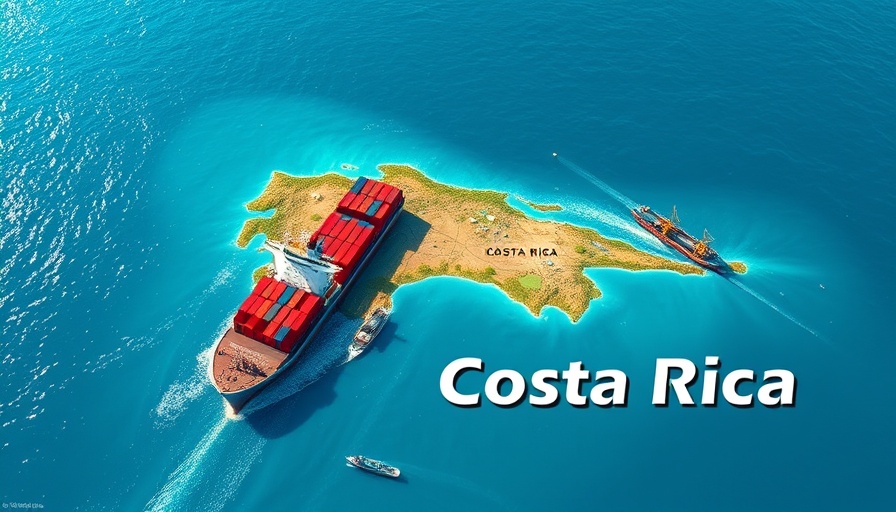
Understanding Costa Rica's Tariffs: A Lifeline for Local Industries
In recent discussions surrounding the effects of tariffs in economic frameworks, one notable case stands out: Costa Rica. The importance of tariffs in this Central American nation extends beyond government coffers; they play a crucial role in preserving local agriculture and protecting homegrown industries. While tariffs can be perceived as a burden by some, especially those considering relocating to or investing in the country, understanding their purpose is essential for making informed decisions.
In 'How Costa Rica Uses Tariffs', we delve into the advantages and intricacies of tariffs, prompting broader analysis of their implications for expats and locals alike.
The Basics of Tariffs: Import Taxes Explained
At its core, an import tariff is a tax imposed on goods entering a country. In Costa Rica, locally referred to as imptos al importion, these tariffs apply to a vast range of products, from automobiles to consumer electronics. Take, for instance, the case of importing ground beef or air conditioning units—each incurs substantial costs through multiple layers of taxation. For example, importing ground beef can total around 19%, while air conditioning units can surpass 38%. This layered taxation structure raises questions about the cost of living for residents and expats alike.
The Historical Context of Tariffs in Costa Rica
Tariffs have been a longstanding practice in Costa Rica, intricately woven into the economic and political tapestry of the nation. The rationale behind imposing these taxes has been twofold. First, they generate essential revenue for the government amid fluctuating global economic conditions. Second, they protect vital local industries—most notably agriculture, which has a storied legacy in the country. For decades, sizeable tariffs have shielded Costa Rican products, such as dairy and sugar, from international competition.
Free Trade Agreements: A Double-Edged Sword
Costa Rica's economic relationships extend through several free trade agreements, notably with the European Union, the United States, and China, among others. These agreements can lead to more favorable tariff conditions, fostering an environment for trade while also raising the question of whether certain local industries might suffer. While the rationale for higher tariffs remains valid for protecting local industries, free trade agreements prompt debates about balancing domestic interests with global commerce.
Examining the Critiques: The Case Against High Tariffs
Critics of high tariffs often argue that they disproportionately affect the middle class by inflating the prices of essential goods. This inflation can strain budgets, especially for retirees or those on fixed incomes looking to adapt to life in Costa Rica. However, proponents defend the tariffs as necessary, asserting that they prevent over-reliance on foreign imports and fortify the economy against external shocks. This ongoing conversation reflects a central tension in Costa Rican policy-making that warrants more public discourse and consideration.
Looking Ahead: The Future of Tariffs in Costa Rica
The future of tariffs in Costa Rica may be influenced by several factors, including evolving international trade dynamics and domestic economic stability. As Costa Rica continues to leverage its strong medical device manufacturing sector, exports to the United States are expected to thrive. Still, as the country navigates these waters, the dialogue around tariffs remains vital—both for protecting local industries and ensuring fair prices for consumers.
Your Insight: Understanding Tariffs as an Expat
For those considering relocating to Costa Rica, understanding tariffs is more than an economic concept—it’s a reality check. This knowledge influences purchasing decisions and illuminates the balance of supporting local economies while adjusting to life in a new country. Being informed about these complexities helps expats align their expectations with the economic landscape they’re entering, enhancing their experience in Costa Rica.
As we’ve explored, the discussion of how Costa Rica uses tariffs plays a significant role in shaping the nation’s economic policies and the lives of those who reside there. It’s essential to stay informed on this topic.
 Add Row
Add Row  Add
Add 




Write A Comment